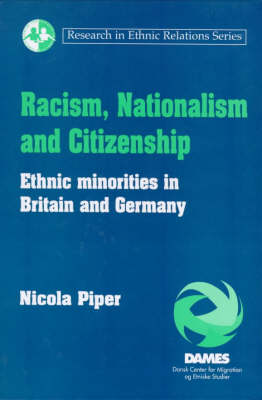Routledge Revivals
1 total work
This book is about the consequences of the permanent settlement of former labour migrants and the formation of the "new" ethnic minorities in contemporary Germany and Britain. It is concerned with the extent to which these minorities are regarded as citizens of German and British society and as potential citizens of the European Union. The core of the argument established here is that there is a link between the processes of racialization and nationalism which leads to an exclusionary concept of citizenship. This link is concreted by the interminingly of nationalit citizenship, or - in other words - the racializing concept of membership, as reflected in law or in the perception of law by civil society. The question of whether or not citizenship functions, or could function, as a mechanism for inclusion and participation for former post-war labour migrants of non-European origin and their descendants is central to the book. The way in which, and the reasons why, settled immigrants do not enjoy fully equal status citizen in German and British society is examined.
In addition, as both countries are members of the European Community, a secondary aim is to discuss how these are reflected, or dealt with on the European level. The empirical data used to probe the theoretical discussion of the relationship between nationalism, racism andcitizenship derive from interviews with organizations working in the so-called "race-relations field" to gain insight into ethnic minorities" perspective. Furthermore, secondary analysis of attitude surveys and opinion polls illustrates civil society's viewpoint which is connected to politicians' rhetoric - one of the aspects tested via discourse analysis of parliamentary debates on ethnic minorities' related issues. Recent supra- and sub-national developments (i.e. integration into the European union, the principles of subsidiary and the establishment of the committee of the regions) lead to the suggestion of a three-layered conception of citizenship with three levels of collective identity, i.e. local, national and European. It is argued that the local level is probably the m resist the power of racism and nationalism. Finally, it is argued that only a concept of citizenship unrelated to nationality (i.e. ethnic descent) can function as a mechanism for the inclusion of 'new' ethnic minorities.
In addition, as both countries are members of the European Community, a secondary aim is to discuss how these are reflected, or dealt with on the European level. The empirical data used to probe the theoretical discussion of the relationship between nationalism, racism andcitizenship derive from interviews with organizations working in the so-called "race-relations field" to gain insight into ethnic minorities" perspective. Furthermore, secondary analysis of attitude surveys and opinion polls illustrates civil society's viewpoint which is connected to politicians' rhetoric - one of the aspects tested via discourse analysis of parliamentary debates on ethnic minorities' related issues. Recent supra- and sub-national developments (i.e. integration into the European union, the principles of subsidiary and the establishment of the committee of the regions) lead to the suggestion of a three-layered conception of citizenship with three levels of collective identity, i.e. local, national and European. It is argued that the local level is probably the m resist the power of racism and nationalism. Finally, it is argued that only a concept of citizenship unrelated to nationality (i.e. ethnic descent) can function as a mechanism for the inclusion of 'new' ethnic minorities.
